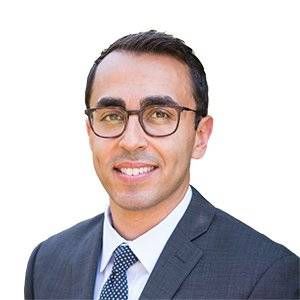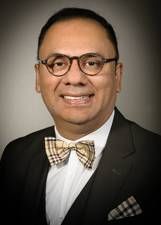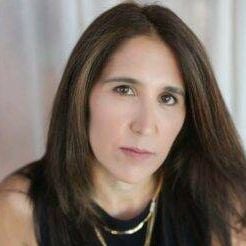Why Are Older Adults More Likely to Be Excluded From Cancer Drug Trials?
Here are six things you can do to change that
When my father was diagnosed with stage 3 lung cancer at age 74, his prognosis was grim. The first two doctors were unconvinced that chemotherapy would be effective and stressed that the side effects would be grueling. They suggested he enjoy the time he had left, which both estimated would be six months to a year.

My family urged my father to get a third opinion before deciding how to proceed. This doctor suggested he try chemotherapy, so he did. After six months, it was determined that the treatment wasn't working and the cancer had progressed.
But by that point, the Federal Drug Administration (FDA) had just approved a new immuno-therapy drug called Opdivo. Five years after his initial diagnosis, my father is still alive. He continues to receive monthly Opdivo treatments but is able to participate in all of his favorite activities, including spending time (although sometimes via video chat due to COVID-19) with his nine grandchildren.
My father was lucky that this new drug had recently been approved. Had it still been in the trial phase, my dad probably would not have met the criteria set by the pharmaceutical company.
Although most cancers are diagnosed in older patients, pharmaceutical companies and physicians are reluctant to offer them the chance to participate in drug trials.
"They worry that an older patient will be more likely to take the drug incorrectly or miss a follow-up appointment with the doctor."
"The inadequate representation of older patients in clinical trials leads to inadequate evidence and knowledge regarding cancer therapy," explained Dr. Wasif Saif, a professor in the Institute of Cancer Research at the Feinstein Institutes in New York.
Why Aren't Older Patients Desirable for Drug Trials?
About half of people diagnosed with cancer are over age 65, yet this age group is underrepresented in clinical trials of new cancer drugs. "There is currently no incentive to establish real-world effectiveness among older adults. Older adults need a seat at the table," said Dr. Mina Sedrak, deputy director of the Center for Cancer and Aging at City of Hope in Duarta, Calif.
Sedrak was the lead author on a recently published study in the journal CA: A Cancer Journal for Clinicians that found:
- 50% of studies reported barriers such as stringent eligibility criteria
- 78% of studies reported that doctors were reluctant to enroll older adults due to the risk of toxicity and concerns about the patient's multiple additional medical conditions
- 56% of studies found that a patient's age alone caused physicians to hesitate to recommend clinical trial enrollment
Sedrak said that while two in five Americans with cancer are 70 or older, fewer than 25% of patients in cancer trials registered with the FDA are in this age group.

Part of the problem is that pharmaceutical companies may set a criteria for drug trial participation that older patients cannot meet due to their age or other health issues. Sedrak said, "Most clinical trials are designed to select healthy, fit adults with few co-morbidities" (multiple medical conditions).
While this increases the likelihood that the trial will have good results (and the drug will receive approval), the concern is that the drug may not have the same effect on the general cancer population, especially older patients, as it has on the subjects in the trial. "Most of what we know about cancer therapy is based on trials that do not reflect the patients we see in clinic," Sedrak said.
Another reason older patients may not be offered a chance to participate in a trial is because physicians may have an age bias, according to Saif.
"Physicians may fear that older patients may be less compliant, especially those that don't have a good support system," said Saif. "They worry that an older patient will be more likely to take the drug incorrectly or miss a follow-up appointment with the doctor, which can impact the study results or possibly have an adverse effect on the patient's overall health."
"Many physicians are biased against older patients, so they may not even offer them the chance to be in a drug trial."
Why Older Patients Should Be Included
Many newly approved FDA drugs lack scientific data on how these drugs will harm or benefit older adults.
"We need to include older patients so that we can better understand how they could benefit or be harmed from new treatments," Sedrak said. "It would be unacceptable to develop a vaccine for a disease such as COVID-19 that predominantly impacts older patients and not have enough older adults in the trials."

"Aging is complex, complicated and stochastic, and the elderly population is a large and the fastest-growing portion of our population all across the globe," Saif said. "In developed countries, [the] majority of the population are still active and able to care for themselves in their sixth and seventh decade."
Saif believes that a patient's age should be only one of several factors a physician considers when deciding whether the person would be a good candidate, and stressed that both physicians and pharmaceutical companies shouldn't take a 'one size fits all' approach when it comes to older patients. There are many important factors to consider including comorbidities, possible drug interactions, a patient's ability to perform daily life activities and the presence (or absence) of caretakers.
What Can Cancer Patients Do?
While older cancer patients cannot change the criteria pharmaceutical companies set for participation in their trials, they can:
- Advocate: "Ask your doctor about clinical trial opportunities when you're diagnosed with cancer and do your own research because there may be an option that you haven't heard about," said Sedrak. "It may benefit you, but perhaps your doctor may not have considered you for the investigational trial."
- Choose the right doctor: "Make sure that the physician is paying attention to you and looking beyond your age," advised Saif. The doctor should be asking questions about your lifestyle, daily activities, other medical issues and how independent you are. All of these play a role in how successful someone will be in a trial.
- Seek several professional opinions: "There is currently systemic ageism and many physicians are biased against older patients, so they may not even offer them the chance to be in a drug trial," said Sedrak. This is why it is important to go for a second or even third opinion. Had my father not sought several opinions, his outcome would have been very different.
- Meet with large cancer institutes: If your physician says there are no trials available, do your own investigating. "Some trials may not be available at a local oncology practice, so it might be worth making some inquiries at bigger cancer research institutions," advised Sedrak.
- Stay healthy: While patients can't control their age, they can take care of themselves so other factors won't make them ineligible for a trial. "Stay healthy, exercise and eat well so that you are as robust and fit as possible," Sedrak said.
- Present a strong support system: A major bias against older adults is the perception that they will not be able or willing to comply with the protocols of a drug trial. "It's imperative to engage caregivers," said Sedrak. "They are the biggest advocates for older patients." Added Saif: "Older patients may not want to be a burden to their adult children, but physicians want patients in a clinical trial with a strong support team."
Increasing the number of older patients in clinical trials is ultimately best for everyone. Said Saif: "When clinical trials include diverse participants, notably elderly patients, the study results may have a much wider applicability."


